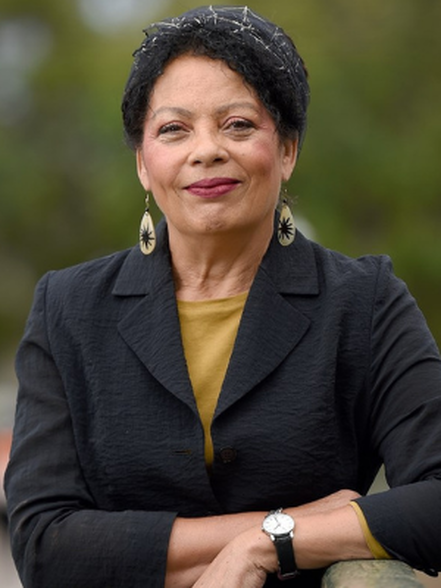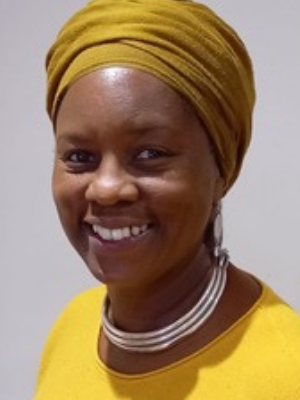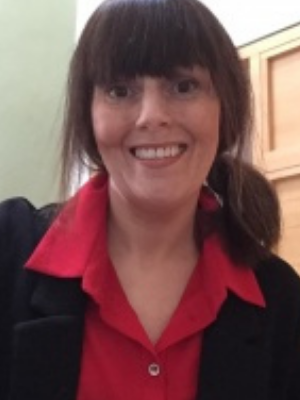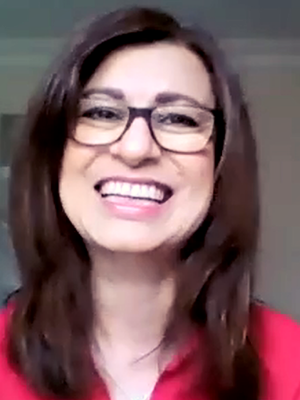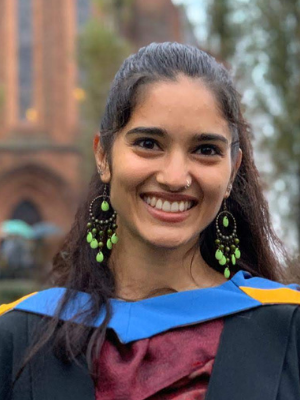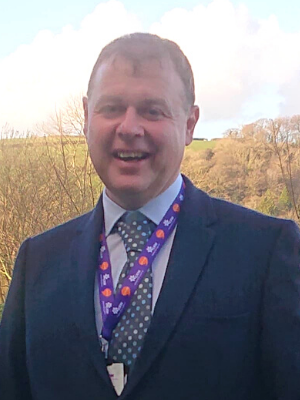- About
-
Conferences
- Publications
-
Funded Projects
- FNDPs 2019-20
- FNDPs 2017-18
- FNDPs 2016-17
- FNDPs 2015-16
-
Completed SSRIs
>
- Promoting Values and Citizenship through Human Rights Education
- Enabling Student Voice in the Classroom
- Campaign! Make an impact
- Promoting citizenship and values education in primary schools facing challenging socio-economic circumstances: an exploratory pilot
- Beyond Sectarianism - new thinking for a new generation
- Meeting the cross curricular challenge
- SSRI Awards >
- Citizenship
- Join
On Saturday February 26th, we heard from our guest speaker Professor Charlotte Williams and 3 thought-provoking workshops.
|
Professor Charlotte Williams OBE
A graduate of Bangor University and now an Honorary Professor in the School of History, Philosophy and Social Sciences there, Professor Charlotte Williams retired recently as Professor of Social Work and Deputy Dean at Royal Melbourne Institute of Technology University in Melbourne, Australia. She holds Honorary Fellow appointments at Glyndwr University and the University of South Wales. Alongside her academic career here and in Australia, Professor Williams is known for her ground breaking text, ‘A Tolerant Nation?’ which explores ethnic diversity in Wales and her award-winning memoir of growing up mixed race in Wales, ‘Sugar and Slate’, which won Wales Book of the Year 2003. She has been appointed by the Welsh Government to oversee improvement in the teaching of Welsh BAME history and she warned that teachers alone cannot tackle the racism still “deeply entrenched” in Wales and elsewhere. |
ABSTRACT
In November of 2021 the Welsh government took the historic step of making mandatory the teaching of Black, Asian and Minority perspectives in the curriculum. This makes Wales the leading nation in the UK to take this step. The preparation for the roll out of the new curriculum is well underway, with primary schools in Wales adopting it from September this year and secondary schools to follow in 2023. How did this come about? What key drivers made the Welsh government take this step? Nevertheless, there remains a number of questions pertinent to the role of citizenship education in advancing this ambition. What exactly will mandatory mean in this context? How can we ensure the momentum is sustained? And what models might characterise how schools engage with this thematic?
Watch the Presentation
In November of 2021 the Welsh government took the historic step of making mandatory the teaching of Black, Asian and Minority perspectives in the curriculum. This makes Wales the leading nation in the UK to take this step. The preparation for the roll out of the new curriculum is well underway, with primary schools in Wales adopting it from September this year and secondary schools to follow in 2023. How did this come about? What key drivers made the Welsh government take this step? Nevertheless, there remains a number of questions pertinent to the role of citizenship education in advancing this ambition. What exactly will mandatory mean in this context? How can we ensure the momentum is sustained? And what models might characterise how schools engage with this thematic?
Watch the Presentation
Workshops - Saturday, February 26th
|
1. Introduction to Decolonising the Curriculum
Facilitated by Karen Brook, Oshun Education The session was a combination of presentation and group discussions. Participants learned about and joined in discussions that addressed:
Bio: Karen’s background is in education and she is well known across the prison service for delivering a unique Black Self Development Programme to Black prisoners. Her interest in Black British History grew from a confusion throughout school when presented with the African American Civil Rights Movement and African Enslavement as a definition of Black History. Since 2019 she has been working with schools offering training in exploring decolonisation, Black British history and the inclusion of local black history in the curriculum. Session Presentation |
|
2. Down the Clyde at COP26 – reflections from Glasgow, and how climate justice became it’s defining issue
Facilitated by Mark Irwin, Education Scotland Living in Glasgow, Mark was in the city for the duration of COP26, and was the lead for Education Scotland’s work around the conference. In this session, Mark reflected on his experiences at COP26, capturing the voices of young people and others he met over the 11 days. Participants joined in group discussions on how to move the dialogue around climate change from a focus on technical solutions to a deeper understanding of climate change as a human rights and justice issue, and what this means for the curriculum and young people. Bio: Mark is an Education Officer with Education Scotland, focusing on STEM and Learning for Sustainability. Before joining the organisation he was the lead for Sustainable Development Education in Glasgow City Council and set up STEM Glasgow, a city-wide partnership. Mark has also worked as a countryside ranger and started his sustainability journey as a zoologist working with endangered species in various parts of the world. Making the climate and ecological crises real, relevant and important to all young people continues to be the key driver for his work. Presentation unavailable |
|
3. Down the Clyde at COP26 – reflections from Glasgow, and how climate justice became it’s defining issue
Facilitated by Caroline Murphy, Financial Justice Ireland This session was a practical hands-on workshop where we worked in small groups to explore interactive activities for addressing climate justice in the classroom. Participants looked at a sample of active learning methods for building:
Bio: Caroline Murphy, Financial Justice Ireland, has over fourteen years of experience in Global Citizenship Education (GCE) management and delivery. She holds a PhD in Education, which specialised in the creation, development and testing of active learning methods for integrating GCE across curriculum, policy and practice. She has worked for over 12 years in the Irish Development Education Sector, managing Global Learning, Public Engagement, and Early Childhood Education interventions. Session Presentation Padlet |
On Sunday February 27th, We heard from our guest speaker and Wales Country Lead, Shubnam Aziz and an additional 3 challenging and informative workshops.
|
Shubnam Aziz
A Senior Leader at Mount Stuart Primary in Cardiff and one of our wonderfully devoted Welsh country leads for the Five Nations Network, Shubnam delivered a compelling talk about her school's experience. We also watched a powerful clip from an episode of The Breakdown. The clip was introduced to the conference from Saturday's workshop lead, Caroline Murphy, and we felt it was an essential visual of how the themes of the conference crossover. Watch The Breakdown clip Episode four of The Breakdown looks at the intersection between racism and climate change, highlighting how climate change is first and foremost a social justice issue. Looking forward the episode explores the role of the Green New Deal as part of a just and fair transition. |
Workshops - Sunday, February 27th
|
1. Building Racial Literacy for Educators
Facilitated by Mélina Valdelièvre, Education Scotland Building Racial Literacy (BRL) is a new anti-racist professional learning programme that is being co-constructed and piloted in Scotland. This session focused on the design principles of the programme: BRL creates safer, braver spaces for ideas and feelings to coexist, so that educators can feel the range of emotions that come with, and are needed, for anti-racism to be a long-term commitment. By framing the programme as the beginning of a long-term process, BRL equips educators with the vocabulary to make sense of the challenges they face on their anti-racist journeys, from white fragility to institutional racism, and nurtures communities of practice they can rely on to continue building their racial literacy. In this session, participants had the opportunity to work in groups to:
Bio: Mélina Valdelièvre started her career as an English teacher in Glasgow and she was granted a US scholarship to research racial dialogue in education. Mélina co-founded The Anti-Racist Educator before joining Education Scotland’s Professional Learning and Leadership team as a Lead Specialist in Race Equality. As a vegan of colour passionate about climate justice and racial justice, Mélina is proud to be leading Scotland’s first national anti-racist professional learning programme for educators: Building Racial Literacy. Session Presentation |
|
2. Cynefin and the Story of Wales
Facilitated by Dr. Huw Griffiths, Powys County Council The aim of the seminar session was to outline the current changes in Welsh education brought about by the new curriculum as we explored ideas of belonging. The session challenged our idea of identity. Bio: Dr. Huw Griffiths works for Powys County Council's Education Department as a 14+ Leader of Teaching and Learning. He has been working on the Curriculum for Wales for over four years and is very keen to see every school in Wales learn about the Story of Wales, Cynefin and Welsh BAME history. Dr. Griffiths graduated from Cardiff University with a Doctorate in Welsh History and taught History, Sociology and Politics for over twenty years. Guided by the vision and aspiration of the four purposes, the stories of Wales should be at the heart of every school curriculum in Wales. Presentation unavailable |
|
3. Teaching Sustainability through Citizenship: What happens when you change the conceptual lens?
Facilitated by Sera Shortland (New College Liecester), Terri Barry (Sandwick Junior High School), and Ben Miskell, (Bradfield School) Citizenship teachers from England, who are also Association for Citizenship Teaching (ACT) Ambassadors, led a practical workshop session presenting their collaborative work on how to teach about sustainability through the lens of democracy. The teaching resources they produced included a concept map and a scheme of work which included a sequence of lessons for secondary age pupils. The teaching materials were shared with participants and exemplify how the theme of sustainability can be used to deepen learning about parliamentary democracy and the law making and shaping process. During the workshop, the presenters shared their thinking and discussed with participants how such an approach might be adapted to focus on other themes, for example when racial justice is explored alongside sustainability. |
Bios:
Sera Shortland: After graduating from a Citizenship PGCE at Leicester University in 2004, Sera has worked in several inner city schools and currently works as Head of Citizenship at New College Leicester teaching citizenship up to GCSE. Passionate about all things citizenship, in her spare time she gets involved with many ACT projects, delivering sessions for Parliament Education and the teacher network as part of her role as ACT Ambassador. A member of ACT Council, Sera has just started volunteering to co-edit the ACT journal which she is finding really interesting as well as being a steep learning curve!
Terri Barry: Terri gained her PGCE in RE and Citizenship at Oxford University where she pursued a Masters in Teaching and Learning focusing on assessment in Citizenship. She was Subject Lead of Citizenship, RE and PSHE at Brockhill Park Performing Arts College, Kent for 8 years until recently moving to Shetland where she now works as Principal Teacher of Additional Support Needs at Sandwick Junior High School. Terri is a member of the ACT council, contributes as an ambassador and works as a consultant with the Association of Citizenship Teachers ensuring she is involved in the development of citizenship education.
Ben Miskell: Ben is a specialist Citizenship teacher in South Yorkshire and a Teaching Ambassador for ACT, where he helps to advise other educators in his region. He is also a member of ACT council. Outside of the classroom Ben enjoys walking in the Peak District and is an elected City Councillor in Sheffield, acting as Executive Advisor for Health and Social Care.
Session Presentation
Sera Shortland: After graduating from a Citizenship PGCE at Leicester University in 2004, Sera has worked in several inner city schools and currently works as Head of Citizenship at New College Leicester teaching citizenship up to GCSE. Passionate about all things citizenship, in her spare time she gets involved with many ACT projects, delivering sessions for Parliament Education and the teacher network as part of her role as ACT Ambassador. A member of ACT Council, Sera has just started volunteering to co-edit the ACT journal which she is finding really interesting as well as being a steep learning curve!
Terri Barry: Terri gained her PGCE in RE and Citizenship at Oxford University where she pursued a Masters in Teaching and Learning focusing on assessment in Citizenship. She was Subject Lead of Citizenship, RE and PSHE at Brockhill Park Performing Arts College, Kent for 8 years until recently moving to Shetland where she now works as Principal Teacher of Additional Support Needs at Sandwick Junior High School. Terri is a member of the ACT council, contributes as an ambassador and works as a consultant with the Association of Citizenship Teachers ensuring she is involved in the development of citizenship education.
Ben Miskell: Ben is a specialist Citizenship teacher in South Yorkshire and a Teaching Ambassador for ACT, where he helps to advise other educators in his region. He is also a member of ACT council. Outside of the classroom Ben enjoys walking in the Peak District and is an elected City Councillor in Sheffield, acting as Executive Advisor for Health and Social Care.
Session Presentation
- About
-
Conferences
- Publications
-
Funded Projects
- FNDPs 2019-20
- FNDPs 2017-18
- FNDPs 2016-17
- FNDPs 2015-16
-
Completed SSRIs
>
- Promoting Values and Citizenship through Human Rights Education
- Enabling Student Voice in the Classroom
- Campaign! Make an impact
- Promoting citizenship and values education in primary schools facing challenging socio-economic circumstances: an exploratory pilot
- Beyond Sectarianism - new thinking for a new generation
- Meeting the cross curricular challenge
- SSRI Awards >
- Citizenship
- Join

